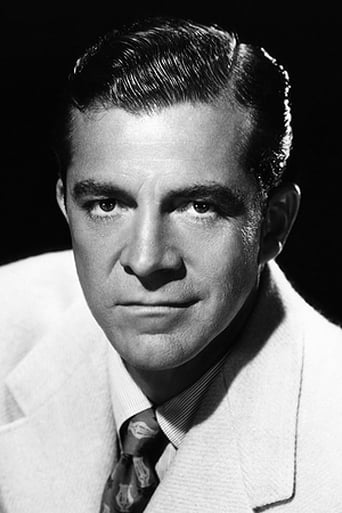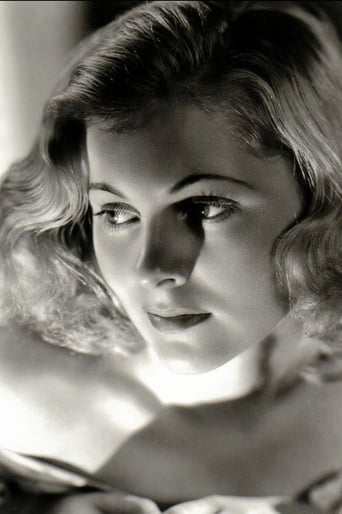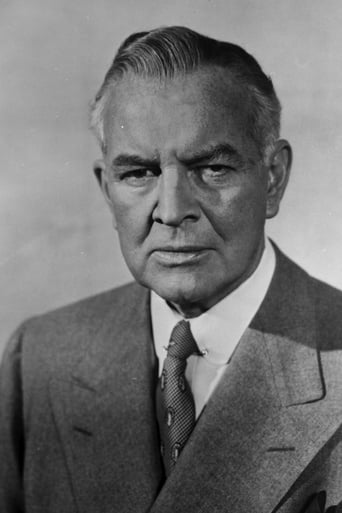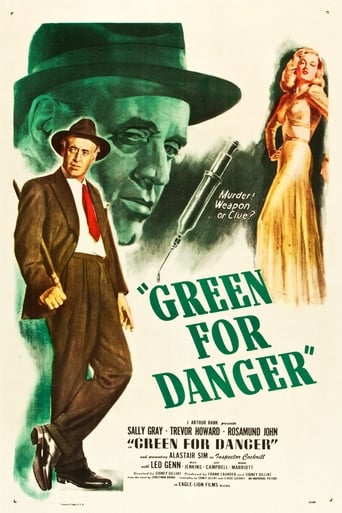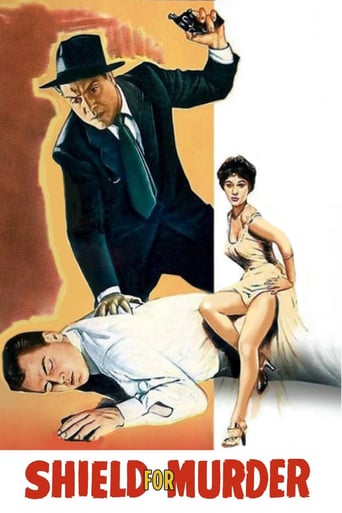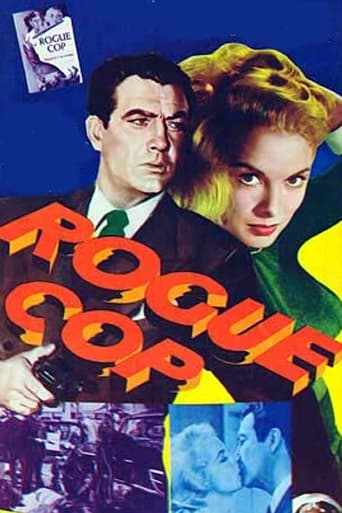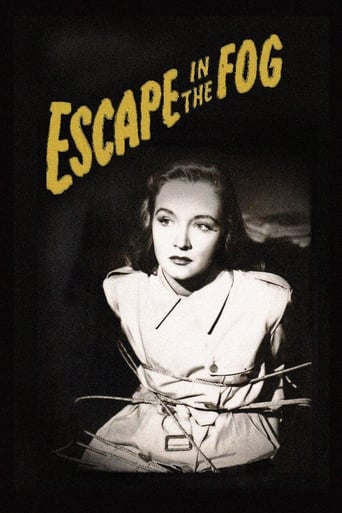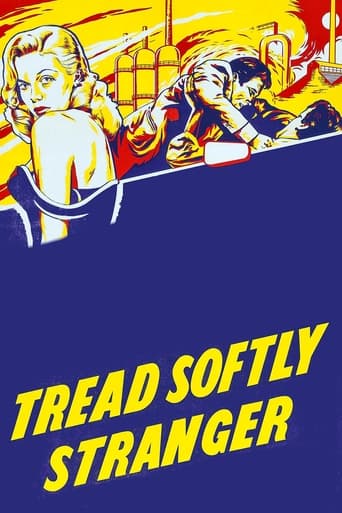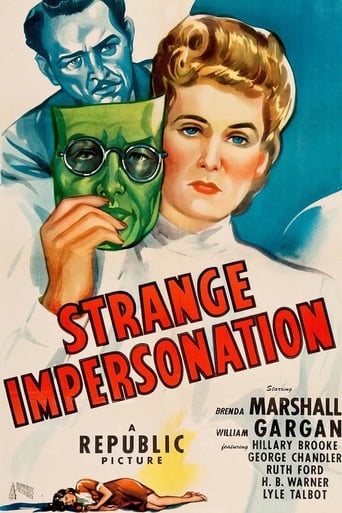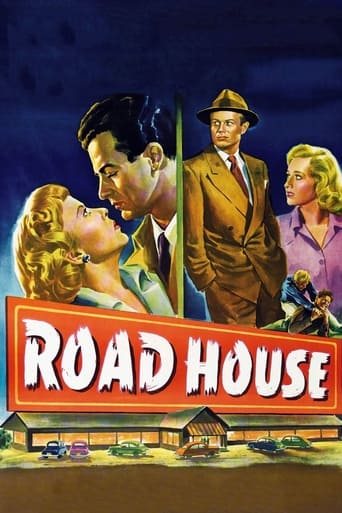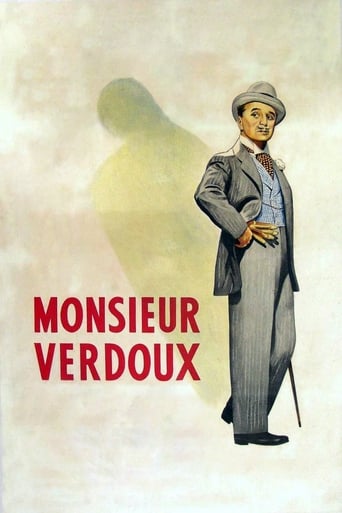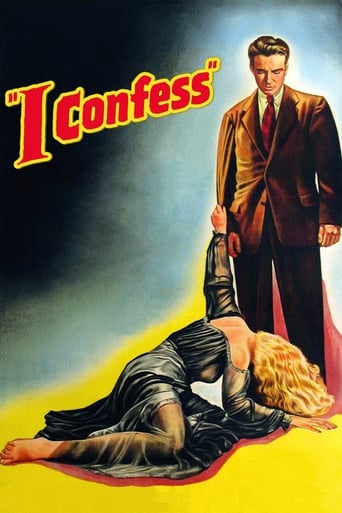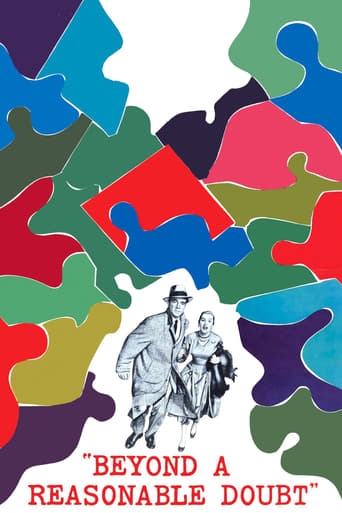
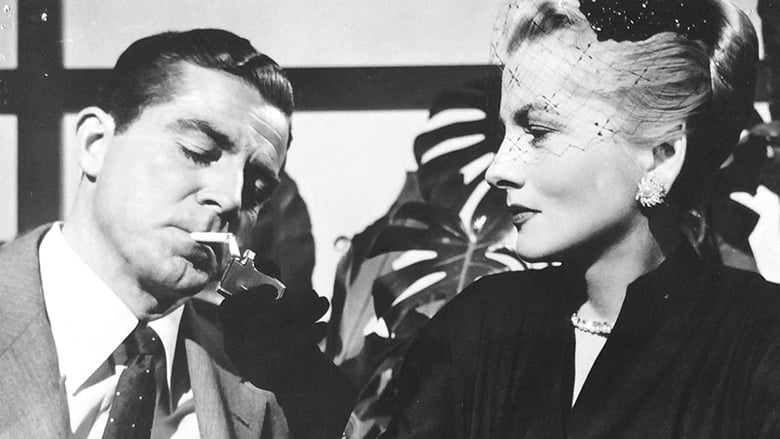
Beyond a Reasonable Doubt (1956)
A newspaper publisher, wanting to prove a point about the insufficiency of circumstantial evidence, talks his possible son-in-law Tom into a hoax in an attempt to expose ineptitude of the city's hard-line district attorney. The plan is to have Tom plant clues leading to his arrest for killing a female nightclub dancer. Once Tom is found guilty, he is to reveal the setup and humiliate the DA.
Watch Trailer
Cast
Similar titles
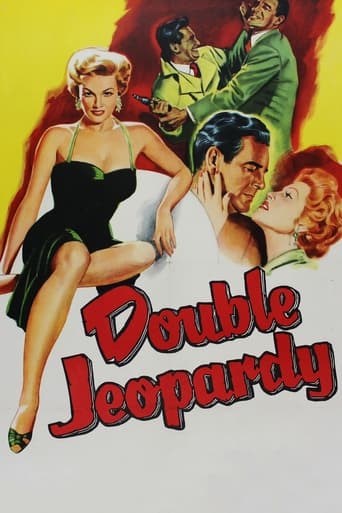
Reviews
Simply A Masterpiece
How sad is this?
Funny, strange, confrontational and subversive, this is one of the most interesting experiences you'll have at the cinema this year.
Worth seeing just to witness how winsome it is.
a film- noir who brooks in inspired manner the ordinaries rules of genre.the secret - precision of atmosphere build, the use of details, the acting who must be only correct and the final. result - a kind of puzzle who presents a new image , far to the expectation against the clue from title. that is the difficult fact, because Lang propose a different way for trip. and the viewer who desires see same story in different nuances, ignores the admirable craft who defines the master's signature. extraordinary in this case is the equilibrium. not the mistakes, at first sign, from script who does unrealistic few scenes, not the performance of actors who could seems be cold. but the work of director to give elegance to a story who impress for its refined elegance and subtle solutions. a good film ? maybe. more important, a high Fritz Lang.
Beyond a Reasonable Doubt (1956)An early wide screen black and white drama that marks the end of Fritz Lang's American career and also shows the winding down of two great stars, Joan Fontaine and Dana Andrews. The film is no send off, exactly, but it is slightly tired, as if the formula of movie-making needs a twist and it isn't here.That's not the point, of course. This is now the mid-fifties, crisis time for Hollywood, and with widescreen (and widescreen color) movies making a final jab at the rise of television. The plot is sensational, and not too far from what an extended early television drama might try, with mostly interior shooting and a staged (sometimes stagey) presentation. In all it's not Lang's best, and he was a master at both noir/expressionist drama and at getting to the human dilemma of fate and murder. Andrews and Fontaine are not a bad pair—both are matched in calm and sophistication, and beauty, even, though Fontaine seems like an accessory until the very end. Andrews rules the plot, which makes him out to be a writer desperate for a new story. So desperate he's going to pretend to commit a murder just to test the justice system.It's all so outrageous you want to believe it, though your mind says it just wouldn't happen. It's too convenient, and one man's suggestion from the newspaper turns out to be the other man's reality. Enough said!Oddly enough, this is an RKO distribution even after the studio's demise (I don't know the reasons there) but it might point to a less than perfect crew. Certainly the cinematographer, which Lang relied on greatly in earlier films, is no one with credentials. Likewise the editing and writing are fairly routine, even lackluster. And so if a movie that depends on some psychological intensity is really a bit of a grunt effort, whatever the star power involved, it's a bit doomed. So watch this if you are curious about any of the parts. I'm a fan of all three of the principles here, and so had to watch it. But I didn't walk away impressed.
Here we're presented with a contrived premise of daring proportions that in the hands of director Fritz Lang is compelling and entertaining movie fare. It's a psychological thriller with plot momentum and a twist ending that resolves all that came before with a real payoff for the viewer. Dana Andrews, playing Tom Garrett, an investigative reporter, takes on a crusade casting himself as lead crusader. His plan is to expose the over-zealous district attorney Thompson, an unethical man always working towards one more criminal conviction and one more execution, and he doesn't care how he gets the result. Garrett's intent therefore is twofold, to expose judicial malfeasance and thereby present a dramatic case against capital punishment. Garrett puts into action a plan with an intricate train of events and trail of incriminating evidence framing himself for a crime he did not commit. The murder victim is an unsympathetic nightclub chorus floozy with a reputation for showing any man everything she's got if there's money in it for her. Garrett's co-conspirator and dedicated support in this ruse is influential newspaper publisher Austin Spencer, the only other person who knows of Garrett's deception. That his playing at murderer may be a dangerous masquerade that will place him in real peril doesn't seem to overly concern Garrett. He has safeguards in place. What can go wrong? Well, just about everything. The ensuing press coverage is sordid and full of sensationalism rising to a fever pitch, which the DA styles as "working up artificial emotions." This newspaper frenzy is not entirely unwelcome PR to the the DA whose professional ambitions thrive on publicity.Joan Fontaine is Garrett's love interest and incidentally, the daughter of the newspaper publisher. Fontaine's character Susan Spencer is a pale personality, a lovely, well-bred society girl who shows distress by pacing up and down and twisting a handkerchief clutched in her hands. Fontaine, always somewhat of a decorous wallflower, does manage to muster some self-assertion in her efforts to save her love when his situation as murder suspect number one turns bleak and dire. Dana Andrews puts out his usual journeyman's effort; he's a solid actor who always seems to be working hard at his craft. This is a neat little movie. "Movie time" well spent.
Opening with a death-row electrocution and ending at the moment in which a man is presumably sentenced to the same fate, Reasonable Doubt is defined by its audacious, sensationalistic arrangement of events. The story's anti-capital punishment premise—a struggling writer frames himself for murder to prove the fallibility of the death penalty—obviously lends itself to pulpy embellishment, but the film's most spectacular feat is its jaw-dropping last-reel twist, which puts its own purported moral stance through the ringer by positing emotion as the true determiner of principles. Lang baldly manipulates the audience with this reversal, but his purpose, deeper than momentary awe, is to illustrate the eternal conflict in society between humankind's self-preserving unpredictability and its own noble, if constantly undermined, search for unified moral judgments. What ultimately transcends the stodginess of the theoretical conversations between the main players and their necessarily shallow characterizations (the film hinges on befuddlement for a reason) is Lang's empathy for a condemned man, a sensibility fully embodied in two shots: a close-up on a revoked certificate of pardon and the reverse shot of its regarder as he sadly considers freedom for the last time. In retrospect, the story's outcome is established in one of its very first shots, as the guilty party looks unblinkingly upon an execution while the other spectators turn away in disgust. Lang's thesis is easily described after all: the only man who can emotionlessly observe the practice of capital punishment is himself a murderer.
